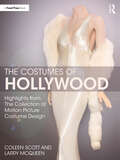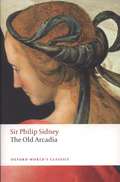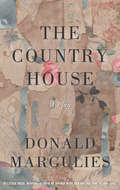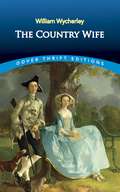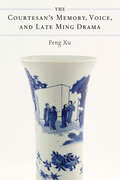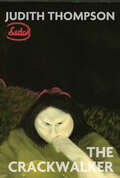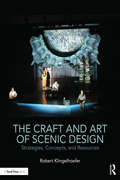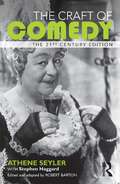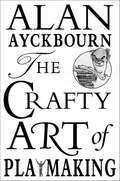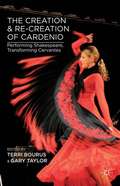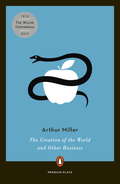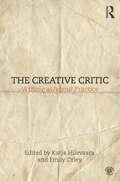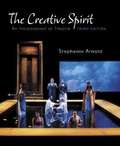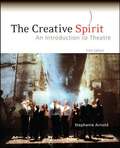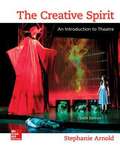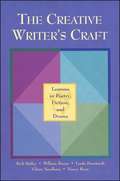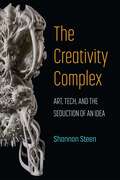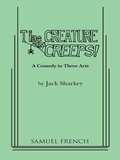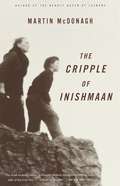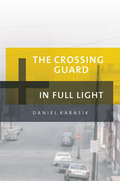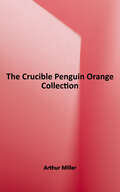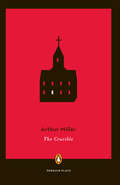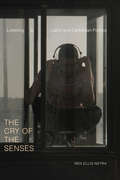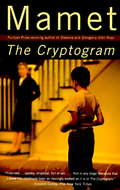- Table View
- List View
The Costumes of Hollywood: Highlights from The Collection of Motion Picture Costume Design
by Larry McQueen Coleen ScottThe Costumes of Hollywood details the design, creation, and influence of over 100 ensembles from some of the most iconic designers, films, and roles in Hollywood history, spanning the 1920s through the early 21st century.All costumes featured are from The Collection of Motion Picture Costume Design, one of the world’s largest private collections, curated over thirty-five years by leading Hollywood costume historian and archivist, Larry McQueen. The book presents full costumes on display in addition to close-ups, and rarely seen interior details of some garments. Iconic costumes, including many with Academy Award nominations, from Some Like It Hot, Hello Dolly, Cabaret, Rear Window, Ben Hur, Mildred Pierce, Angel, Masters of the Universe, The Piano, The Hunger Games, and so many others are featured. This book gives the audience a rare and heretofore unpublished insight into what collecting, restoring, and reproducing entails, and highlights differences between private collecting and museum-backed collections. The Costumes of Hollywood details the significance of the designer, costume, and wearer via thorough research, interviews, and Larry McQueen’s behind-the-scenes knowledge of collecting and working as an archivist in Hollywood.Within the entertainment field, this book will be of interest to professional costume designers and technicians in film, theatre, and performance, as well as students of film production, history, and costume design and construction. The Costumes of Hollywood will also enrich and entertain anyone with an interest in costume design in film and collecting.
The Countess of Pembroke's Arcadia (The Old Arcadia)
by Katherine Duncan-Jones Philip SidneyPhilip Sidney was in his early twenties when he wrote his `Old' Arcadia for the amusement of his younger sister, the Countess of Pembroke. The book, which he called 'a trifle, and that triflingly handled', reflects their youthful vitality. The `Old' Arcadia tells a romantic story in a manner comparable to that of Shakespeare's early comedies. It is divided into five `Acts', and abounds in lively speeches, dialogues, and quasi-dramatic tableaux. Two young princes, Pyrocles and Musidorus, disguise themselves as an Amazon and a shepherd to gain access to the Arcadian Princesses, who have been taken into semi-imprisonment by their father to avoid the dangers foretold by an oracle. As a vehicle for Sidney's prophetic ideas about English versification, the `Old' Arcadia also includes over seventy poems in a wide variety of metres and genres. In clarity, symmetry, and coherence the `Old' version is greatly superior both to the ambitious but unfinished `New' Arcadia and the amalgamated, `composite' version, a hybrid monster which Sidney himself never envisaged.
The Country House
by Donald Margulies"Margulies is literate and intellectually stimulating. His ideas and language hold our attention and earn our respect."--New York"Donald Margulies has an unerring sense of language and the ability to penetrate deeply into the darkness of tangled human emotions."--VarietyGathering in their Berkshire home, a family of actors wrestles with fame, art, and (as always) each other. Brought back together for a melancholy purpose, the solemnity is quickly undercut by restless egos and inflamed temperaments. When the events of the weekend go off-script, secrets are spilled and bonds are broken. Inspired by--and often directly referencing -Chekhov's pastoral comedies, this witty and compelling new comedy unfolds in a fragile old home brimming with memories, new love, and discarded dreams.A funny and poignant comedy about a family of actors, from Pulitzer Prize-winning playwright Donald Margulies.Donald Margulies has won a Lucille Lortel Award, an American Theatre Critics Award, two Los Angeles Drama Critics Awards, two Obie Awards, two Dramatists Guild Hull-Warriner Awards, one Tony Award nomination, six Drama Desk Award nominations, two Pulitzer Prize nominations, and one Pulitzer Prize. His works have been performed on and off Broadway, and at major theaters across the United States, as well as a host of international cities.
The Country Wife: A Comedy, As It Is Acted At The Theatre-royal. Written By Mr. Wycherley
by William WycherleyOriginally performed and published in 1675, this five-act play parodies the vices and hypocrisies of Restoration London. The plot centers on the eponymous country wife, Margery, whose suspicious husband, Mr. Pinchwife, keeps her isolated. On a rare outing to the theater, Margery encounters the aptly named Mr. Horner. A notorious rake who feigns impotence to trick his way into the intimate company of married ladies, Horner soon schools Margery in the art of deception and realizes Pinchwife's worst fears. Bursting with racy dialog and bawdy humor, this comic masterpiece offers an enduring blend of cynicism, satire, and farce. The elegance of the play's construction and the glamour of its setting provide a piquant contrast to its earthy celebration of lust and human folly. The Country Wife has been periodically vilified for its immorality but remains ever popular for its lively characters, witty double entendres, and sophisticated drama.
The Courtesan's Memory, Voice, and Late Ming Drama
by Peng XuPeng Xu’s The Courtesan’s Memory, Voice, and Late Ming Drama argues that courtesans of the era played an active role in the theater and their impact manifested in Chinese literary history, albeit concealed or erased. In the late Ming dynasty (1368–1644), theater was dominated by male performers with professional actresses largely absent from the stage, unlike in the Yuan dynasty (1271–1368), where women performed without restriction in theater troupes. Despite the prevailing assumption that women played no part in the theatrical movement, The Courtesan’s Memory, Voice, and Late Ming Drama illuminates how courtesans, as serious theater artists and playwrights, left a significant mark on the male-dominated dramatic and literary landscapes. This study profoundly remaps the textbook narratives of gender bias, challenges modern prejudices prevalent in the literary history of Chinese drama, and reveals how theatrical conditions and writing styles shifted to accommodate courtesan performances. Utilizing a wide range of sources such as scripts, city guides, biographies, diaries, letters, wood-block illustrations, and paintings, this study distinguishes itself from earlier studies of Chinese courtesans by not thematizing courtesans for their allegorical values, but rather pinpointing their agency in shaping the features of Chinese theater and recognizing courtesans as a source of creativity and development in the medium. Xu’s focus on courtesan performance culture allows for fresh readings of canonical Chinese plays, opening up new ways of understanding the history of Chinese drama written by women, thus deviating from standard historiography based solely on the writings of men.
The Crackwalker
by Judith ThompsonTeresa is sexy, seductive, and mentally challenged. Worshipped by her boyfriend, she turns tricks at $5, is addicted to Tim Hortons' doughnuts, lies without thinking, and overflows with endless kindness, but she continues to hold on to her limitless innocence. The Crackwalker captures the music, the dialect, and the unpretty realities of the inner city. First produced thirty years ago, Thompson's striking portrayal of the discarded class in Canada continues to move audiences today.
The Craft and Art of Scenic Design: Strategies, Concepts, and Resources
by Robert KlingelhoeferThe Craft and Art of Scenic Design: Strategies, Concepts, and Resources explores how to design stage scenery from a practical and conceptual perspective. Discussion of conceptualizing the design through script analysis and research is followed by a comprehensive overview of execution: collaboration with directors and other designers, working with spaces, developing an effective design process, and the aesthetics of stage design. This book features case studies, key words, tip boxes, definitions, and chapter exercises. Additionally, it provides advice on portfolio and career development, contracts, and working with a union. This book was written for university-level Scenic Design courses.
The Craft of Comedy: The 21st Century Edition
by Athene Seyler Stephen Haggard"a work on the art and craft of comedy as important in its own way as works by Stanislavski and Chekhov" – Oxford Theatre Companion In 1939, a young, inexperienced actor wrote to a famous actress of his acquaintance, asking for advice on playing comedy. She responded enthusiastically, and they corresponded variously over the next year. The Craft of Comedy, a record of these exchanges, soon emerged as one of the few classic texts in the field of comedy acting. This major new edition takes a brilliant book and makes it better. Editor Robert Barton has devised extensive supplementary material, including: An introduction to the correspondents, the culture of the time, and the evolution of their book; Summaries, definitions, and exercises and practice scenes for readers wishing to explore Athene Seyler’s invaluable advice; Photographs, additional essays by Seyler, and a guide to easily accessed video clips of her performing. Seyler’s lucid guidance, and Barton’s scrupulous editorship, ensure this legendary work’s rightful status is restored: as one of the great practical guides to the craft of comedy, and an essential resource for actors and students of acting.
The Crafty Art of Playmaking
by Alan AyckbournA Laurence Olivier Award–winning playwright shares his tricks of the trade for beginning and experienced stage writers and directors.“A practical and disciplined look . . . After 44 years at his profession, Ayckbourn knows what he's talking about.” ―Washington Post Book WorldFrom helpful hints on writing to tips on directing, this book provides a complete primer for the newcomer and a refresher for those with more experience. Written in Alan Ayckbourn's signature style that combines humor, seriousness, and a heady air of sophistication, The Crafty Art of Playmaking is a must-have for aspiring playwrights, students of drama, and anyone who has ever laughed their way through one of Ayckbourn's plays.“An entrancing read―no matter what part you play in playmaking.” ―Back Stage“A polished gem of theater lore.” ―Publishers Weekly Annex
The Creation And Re-creation Of Cardenio
by Gary Taylor Terri BourusDid Shakespeare really join John Fletcher to write Cardenio, a lost play based on Don Quixote? With an emphasis on the importance of theatrical experiment, a script and photos from Gary Taylor's recent production, and essays by respected early modern scholars, this book will make a definitive statement about the collaborative nature of Cardenio.
The Creation of the World and Other Business
by Arthur MillerA master dramatist's humorous retelling of the biblical creation story as a parable for our time Breathing new life into timeless biblical tales, Arthur Miller charmingly reimagines the Book of Genesis from the temptation of Adam and Eve to the fraternal tragedy of Cain and Abel. In the beginning, God, generally satisfied with his creation, is nonetheless perplexed by Adam and Eve--why won't they multiply? It takes wily Lucifer to interest them in anything more than playing handball in the Garden of Eden, but their new knowledge comes at a price. The first family is exiled from paradise--just as Lucifer is banned from heaven--and a fallen, morally ambiguous state becomes the destiny of humankind. Though The Creation of the World and Other Business was Arthur Miller's first Broadway comedy, it is full of the searching insight and sparkling dialogue that distinguish his best dramas.
The Creative Critic: Writing as/about Practice
by Katja Hilevaara Emily OrleyAs practitioner-researchers, how do we discuss and analyse our work without losing the creative drive that inspired us in the first place? Built around a diverse selection of writings from leading researcher-practitioners and emerging artists in a variety of fields, The Creative Critic: Writing as/about Practice celebrates the extraordinary range of possibilities available when writing about one’s own work and the work one is inspired by. It re-thinks the conventions of the scholarly output to propose that critical writing be understood as an integral part of the artistic process, and even as artwork in its own right. Finding ways to make the intangible nature of much of our work ‘count’ under assessment has become increasingly important in the Academy and beyond. The Creative Critic offers an inspiring and useful sourcebook for students and practitioner-researchers navigating this area. Please see the companion site to the book, http://www.creativecritic.co.uk, where some of the chapters have become unfixed from the page.
The Creative Spirit: An Introduction to Theatre
by Stephanie ArnoldIncludes discussion of each playwright's other works, sources, timelines for historical and cultural context, and the production of the plays.
The Creative Spirit: An Introduction to Theatre
by Stephanie ArnoldFocusing on the collaborative and creative processes that go into productions, The Creative Spirit: An Introduction to Theatre introduces students to the theatre through the plays themselves and the people who write them, create them, and act in them. The book provides a rich context for each play with a discussion of the playwright's other works, sources for the play, timelines that present historical and cultural background, and a section on a particular production of the play to give students a sense of the theatre industry at close hand. The Creative Spirit includes complete scripts of five plays: August Wilson's Joe Turner's Come and Gone, Wakako Yamauchi's And the Soul Shall Dance, Tony Kushner's Angels in America, Milcha Sanchez-Scott's Dog Lady, and Nilo Cruz's Anna in the Tropics.
The Creative Spirit: An Introduction to Theatre
by Stephanie ArnoldFocusing on the collaborative process, The Creative Spirit 6e introduces students to theatre through the plays themselves and the playwrights, directors, actors, and designers who combine their talents to create the theatre event. The Creative Spirit provides a rich context for each play included, with a discussion of the playwright's biography and sources, historical and cultural timelines, and a case study of a particular production of the play so that students can experience theatre from the inside. All of the materials for a complete course are presented together in one volume.
The Creative Writer's Craft: Lessons in Poetry, Fiction, and Drama
by Mcgraw-Hill Staff Richard BaileyThe Creative Writer's Craft is organized by genre into three sections - Poetry, Fiction, and Drama. It offers students the opportunity to explore and develop crafting skills for writing various types of poems, short stories, and one act plays. The lessons and writing activities encourage students to develop a writer's attitude, embracing the writing process rather than the final result.
The Creativity Complex: Art, Tech, and the Seduction of an Idea
by Shannon Steen“Creativity” is a word that excites and dazzles us. It promises brilliance and achievement, a shield against conformity, a channel for innovation across the arts, sciences, technology, and education, and a mechanism for economic revival and personal success. But it has not always evoked these ideas. The Creativity Complex traces the history of how creativity has come to mean the things it now does, and explores the ethical implications of how we use this term today for both the arts and for the social world more broadly. Richly researched, the book explores how creativity has been invoked in arenas as varied as Enlightenment debates over the nature of cognition, Victorian-era intelligence research, the Cold War technology race, contemporary K-12 education, and even modern electoral politics. Ultimately, The Creativity Complex asks how our ideas about creativity are bound up with those of self-fulfillment, responsibility, and the individual, and how these might seduce us into joining a worldview and even a set of social imperatives that we might otherwise find troubling.
The Creature Creeps!
by Jack SharkeyComedy. Jack Sharkey. . Charcters: 4 male, 8 female . Interior Set. This hilarious send up of the horror story genre has an ancient castle, creaking doors, a mad scientist, his misshapen assistant, a grim housekeeper, secret laboratory, shrieks from the depths of the cellar, disappearing villagers, an incredibly stalwart and stupid hero of sterling character, the scientist's absolutely dopey daughter, and so many laughs you'll lose count. The setting (designed for both proscenium and in the round performances) is the parlor of Castle Von Blitzen in the Carpathian Mountains of Transylvania. Where is the Baron Von Blitzen's secret laboratory? That's what the terrified villagers would like to know and when the scientist and his assistant convert the innocent parlor into a fiend's experimental station, the ingenuity of the set provokes both laughter and applause.
The Cripple Of Inishmaan
by Martin McdonaghIn 1934, the people of Inishmaan learn that the Hollywood director Robert Flaherty is coming to the neighboring island to film a documentary. No one is more excited than Cripple Billy, an unloved boy whose chief occupation has been grazing at cows and yearning for a girl who wants no part of him. For Billy is determined to cross the sea and audition for the Yank. And as news of his audacity ripples through his rumor-starved community, The Cripple of Inishmaan becomes a merciless portrayal of a world so comically cramped and mean-spirited that hope is an affront to its order.
The Crossing Guard & In Full Light
by Daniel KarasikEvery day after school, seventeen-year-old Timothy waits at the neighbourhood crosswalk where years earlier his older sister disappeared. Every day he crosses the street with Jim, the elderly crossing guard. It's a ritual Timothy thinks might go on forever, until one day he arrives and Jim is absent. Instead, standing at the crosswalk is a young woman—a young woman who looks a lot like his missing sister. The Crossing Guard is a tender meditation on the limits of fidelity. Ben's teenaged daughter Claire is hit by a car. To ease his conscience, Leon, the driver, approaches Ben with a cheque. Which Ben takes. But now why is Leon calling Ben at work and showing up on his front lawn? And what's going on with Claire, now recovered, throwing rocks at the window of the boy who lives across the street? In Full Light is a riveting exploration of obligation, obsession and desire.
The Crucible (Penguin Orange Collection)
by Arthur Miller<p><p>First produced in 1953, the Crucible brilliantly explores the threshold between individual guilt and mass hysteria, personal spite and collective evil. It is a play that is not only relentlessly suspenseful and vastly moving but that compels readers to fathom their hearts and consciences in ways that only the greatest theatre ever can.
The Crucible (Penguin Plays)
by Arthur MillerA haunting examination of groupthink and mass hysteria in a rural community <P><P>The place is Salem, Massachusetts, in 1692, an enclave of rigid piety huddled on the edge of a wilderness. Its inhabitants believe unquestioningly in their own sanctity. <P>But in Arthur Miller's edgy masterpiece, that very belief will have poisonous consequences when a vengeful teenager accuses a rival of witchcraft--and then when those accusations multiply to consume the entire village. <P>First produced in 1953, at a time when America was convulsed by a new epidemic of witch-hunting, The Crucible brilliantly explores the threshold between individual guilt and mass hysteria, personal spite and collective evil. <P>It is a play that is not only relentlessly suspenseful and vastly moving but that compels readers to fathom their hearts and consciences in ways that only the greatest theater ever can.
The Crucible: A Play in Four Acts
by Arthur MillerMiller turns, for his setting, to the grim days of the Salem witch trials, and brings into focus an issue that still weighs heavily on the American civilization: the problem of guilt by association. Historical fiction.
The Cry of the Senses: Listening to Latinx and Caribbean Poetics (Dissident Acts)
by Ren Ellis NeyraIn The Cry of the Senses, Ren Ellis Neyra examines the imaginative possibility for sound and poetics to foster new modes of sensorial solidarity in the Caribbean Americas. Weaving together the black radical tradition with Caribbean and Latinx performance, cinema, music, and literature, Ellis Neyra highlights the ways Latinx and Caribbean sonic practices challenge antiblack, colonial, post-Enlightenment, and humanist epistemologies. They locate and address the sonic in its myriad manifestations—across genres and forms, in a legal trial, and in the art and writing of Xandra Ibarra, the Fania All-Stars, Beatriz Santiago Muñoz, Édouard Glissant, and Eduardo Corral—while demonstrating how it operates as a raucous form of diasporic dissent and connectivity. Throughout, Ellis Neyra emphasizes Caribbean and Latinx sensorial practices while attuning readers to the many forms of blackness and queerness. Tracking the sonic through their method of multisensorial, poetic listening, Ellis Neyra shows how attending to the senses can inspire alternate, ethical ways of collective listening and being.
The Cryptogram
by David MametIn this gripping short play, David Mamet combines mercurial intelligence with genuinely Hitchcockian menace. The Cryptogram is a journey back into childhood and the moment of its vanishing--the moment when the sheltering world is suddenly revealed as a place full of dangers. On a night in 1959 a boy is waiting to go on a camping trip with his father. His mother wants him to go to sleep. A family friend is trying to entertain them--or perhaps distract them. Because in the dark corners of this domestic scene, there are rustlings that none of the players want to hear. And out of things as innocuous as a shattered teapot and a ripped blanket, Mamet re-creates a child terrifying discovery that the grownups are speaking in code, and that that code may never be breakable.
